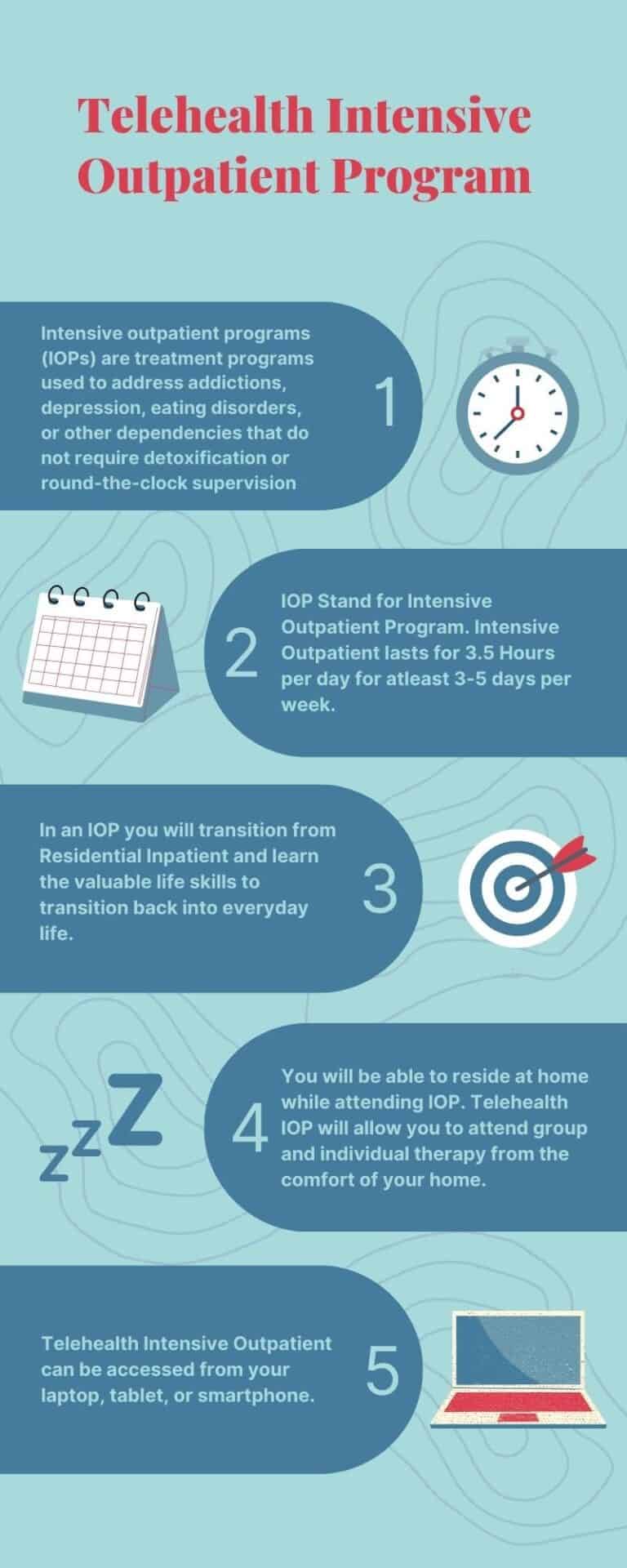The Impact of Holistic Therapies on Mind-Body Healing in an Intensive Outpatient Program
In the world of extensive outpatient programs, the unification of alternative treatments has stimulated considerable interest and argument amongst professionals in the area of psychological health and wellness and wellness. The prospective synergy in between conventional healing techniques and all natural techniques in fostering all natural wellness remains a subject ripe for expedition and evaluation.
Integrating Holistic Therapies in IOP
Incorporating holistic therapies into Extensive Outpatient Programs (IOP) can enhance the overall wellness and therapy results of people looking for mental health assistance. Holistic treatments concentrate on treating the whole individual, resolving not just the signs and symptoms yet additionally the underlying sources of psychological health and wellness problems. By incorporating techniques such as yoga exercise, meditation, art therapy, and acupuncture into IOP setups, patients can experience a much more extensive technique to their therapy.

Benefits of Yoga and Meditation
By infusing IOP setups with all natural therapies like yoga and reflection, individuals can access a variety of advantages that add to their mental and psychological well-being. Yoga, with its concentrate on physical poses, breathing methods, and mindfulness, can assist people minimize anxiety, anxiety, and clinical depression. The practice of yoga exercise advertises relaxation and enhances general mood by launching endorphins, the body's natural feel-good chemicals. In addition, yoga exercise improves self-awareness and cultivates a feeling of inner peace, which can be particularly useful for people going through extensive outpatient therapy.

Acupuncture for Mind-Body Healing
Acupuncture, a traditional Chinese medicine technique involving the insertion of slim needles right into particular factors on the body, provides a distinct method to mind-body recovery by targeting energy flow and promoting alternative wellness. This ancient strategy is based special info upon the idea of Qi, the body's important energy, streaming along meridians or paths. By stimulating particular acupoints, acupuncturists intend to recover the balance of Qi, which is believed to be vital for total health and wellness and well-being.
In the context of mind-body recovery, acupuncture has revealed appealing lead to lowering stress and anxiety, stress and anxiety, and clinical depression by managing the body's physiological feedback to these conditions. Study recommends that acupuncture can help launch endorphins, the body's natural painkillers, and manage natural chemicals to boost mood and psychological well-being. In addition, acupuncture sessions are usually gone along with by a feeling of leisure and calmness, which can add to a much more balanced mindset.
Furthermore, acupuncture is significantly being incorporated into Western medication practices to enhance conventional therapies for various mental wellness disorders, offering an Learn More all natural method that thinks about the interconnectedness of the mind and body in promoting healing and health. Intensive Outpatient click here to find out more Program (IOP).
Mindfulness Techniques in Therapy
Increasing on the world of all natural therapies, mindfulness methods play a critical duty in therapy by fostering a much deeper connection in between the mind and body for total well-being. Mindfulness, rooted in old reflective techniques, includes focusing on today moment non-judgmentally. In the context of an intensive outpatient program, integrating mindfulness strategies can aid people create self-awareness, control feelings, and decrease stress and anxiety levels. Via mindfulness reflection, people can grow an enhanced feeling of understanding of their ideas, sensations, and bodily experiences, advertising a greater understanding of the interconnectedness between physical and mental wellness.
By motivating people to observe their ideas without accessory or judgment, mindfulness cultivates a feeling of acceptance and concern in the direction of oneself. Inevitably, integrating mindfulness techniques into treatment strategies can empower people to proactively participate in their healing trip and advertise holistic well-being.

Reviewing Alternative Treatments' Effectiveness

Qualitative examinations, on the various other hand, involve collecting subjective comments from participants regarding their experiences with alternative interventions. This qualitative data can supply beneficial understandings into the viewed advantages of these therapies on people' general wellness, lifestyle, and coping systems. By integrating quantitative information with qualitative responses, scientists can acquire a much more alternative understanding of the efficacy of these treatments in advertising mind-body healing within an extensive outpatient program. Such analyses are vital for informing evidence-based methods and maximizing alternative therapy methods for people seeking thorough wellness.
Conclusion
To conclude, the combination of alternative treatments such as yoga, reflection, acupuncture, and mindfulness techniques in an extensive outpatient program can have a substantial effect on mind-body healing. These treatments provide an even more thorough approach to treatment by dealing with the physical, emotional, and spiritual elements of a person's wellness - Intensive Outpatient Program (IOP). Examining the efficacy of these holistic treatments is critical in comprehending their potential benefits in boosting the general healing procedure for people in an outpatient setting